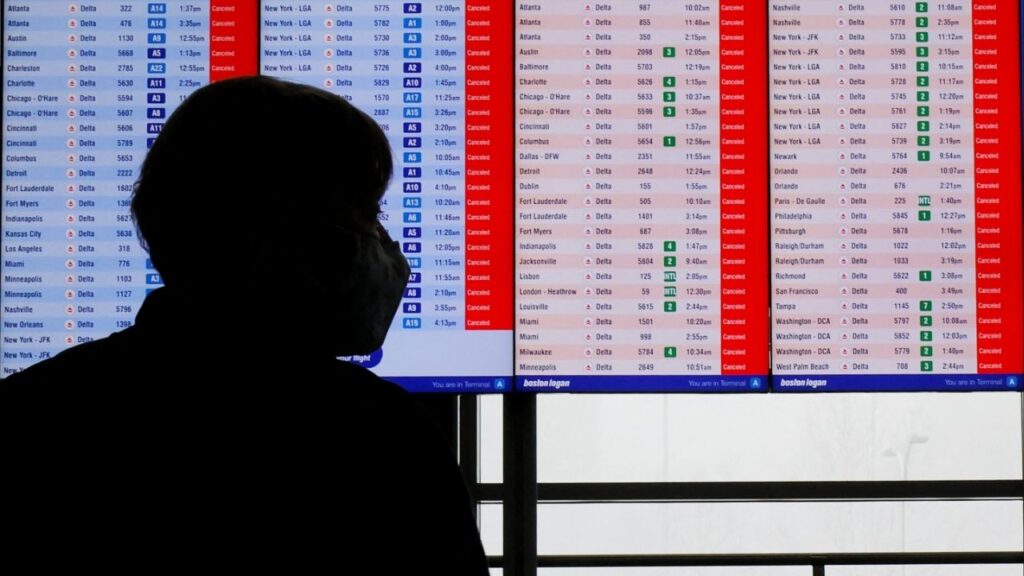California's corporate tax law faces legal challenges, affecting the state budget and reviving a decades-old dispute over multinational income taxation. (CalMatters/Miguel Gutierrez Jr.)

- Microsoft's $90.9 million tax refund claim sparked a legal battle with California's Franchise Tax Board.
- Senate Bill 167 retroactively changes tax law, potentially forcing companies to pay billions in back taxes.
- Two lawsuits challenge the constitutionality of SB 167, citing violation of taxpayers' rights.
Share
|
Getting your Trinity Audio player ready...
|
During Jerry Brown’s first stint as governor of California, he became enmeshed in a very complicated dispute over how the state should tax the incomes of multinational corporations.

Dan Walters
CalMatters
Opinion
More than four decades later, the issue has resurfaced in a corporate tax case involving Microsoft, one of the nation’s largest corporations, a legislative bill that was semi-secretly attached to the state budget in June, and two subsequent lawsuits.
The outcome could reopen tax returns from past years and potentially force companies to pay billions of dollars in retroactive taxes, or alternatively could eliminate a windfall of corporate taxes that Gov. Gavin Newsom is counting on to help close the state’s budget deficit.
The issue that Brown faced in the 1970s was whether corporations should report their global incomes to California and have a calculated percentage subjected to state taxes, or could confine their taxable income reports to actual activities within the state.
At the time, the first methodology, called “unitary taxation,” was used by the Franchise Tax Board, which is California’s version of the Internal Revenue Service. However, foreign corporations, particularly those based in Japan and Great Britain, were adamantly opposed and sought the alternative, dubbed “water’s edge.”
Brown initially supported the tax board but after visiting Japan did a 180-degree flip, while accusing the board’s executive officer, Martin Huff, of giving him “flaky data.” Huff responded by essentially accusing Brown of lying, which led to Brown and legislative leaders quickly changing a unique state law that had protected the tax board’s executive from political interference.
Huff had also alienated legislators by publicly suggesting that their “per diem” expense payments be subject to income taxes. After the law was changed to make it easier for Huff to be fired, he resigned.
The infighting over corporate taxation continued. At one point it even became an issue in a tax treaty that the U.S. government was negotiating with the British government. Eventually, in the 1980s, corporations were given the option of using either the unitary or water’s edge method.
Related Story: CA Supreme Court to Hear High-Profile Case About Taxes
The Battle With Microsoft
Microsoft adopted the latter for its 2017-18 tax return, but found itself in a dispute with the tax board over how dividends from foreign subsidiaries should be treated.
The dispute jelled when Microsoft sought a $90.9 million refund, the tax board rejected the claim and the company appealed to the Office of Tax Appeals, which is essentially a tax court. Last year, after extensive trial-like hearings, a three-member appellate panel unanimously ruled in favor of Microsoft.
It could have forced the state to refund $1.3 billion immediately and perhaps more as the decision trickled through the state’s corporate tax process. But the tax board did not concede defeat and instead turned to Newsom and the Legislature for a rescue.
It came in the form of Senate Bill 167, one of the dozens of “trailer bills” attached to the state budget. It declares that the Franchise Tax Board’s position on the dividend issue is state law, regardless of how the appellate panel ruled.
Related Story: CA’s Perpetual Tax Reform Debate Resumes. Will Anything Change?
This month, two lawsuits were filed to challenge the constitutional validity of SB 167, one by the California Taxpayers Association in Fresno, the other by the National Taxpayers Union in Sacramento.
“This legislation imposes a retroactive tax hike that would reach back several decades, allowing California’s tax collectors to go after companies that already paid every cent of the taxes owed under the laws that were in place at the time,” CalTax president Robert Gutierrez said. “This egregious violation of taxpayers’ rights cannot go unchallenged.”
It should be very troubling that California officials claim the right to levy taxes retroactively by changing the law after losing in court.
About the Author
Dan Walters has been a journalist for nearly 60 years, spending all but a few of those years working for California newspapers. He began his professional career in 1960, at age 16, at the Humboldt Times.
CalMatters is a public interest journalism venture committed to explaining how California’s state Capitol works and why it matters. For more columns by Dan Walters, go to calmatters.org/commentary.
Make Your Voice Heard
GV Wire encourages vigorous debate from people and organizations on local, state, and national issues. Submit your op-ed to bmcewen@gvwire.com for consideration.
RELATED TOPICS:
Categories



















